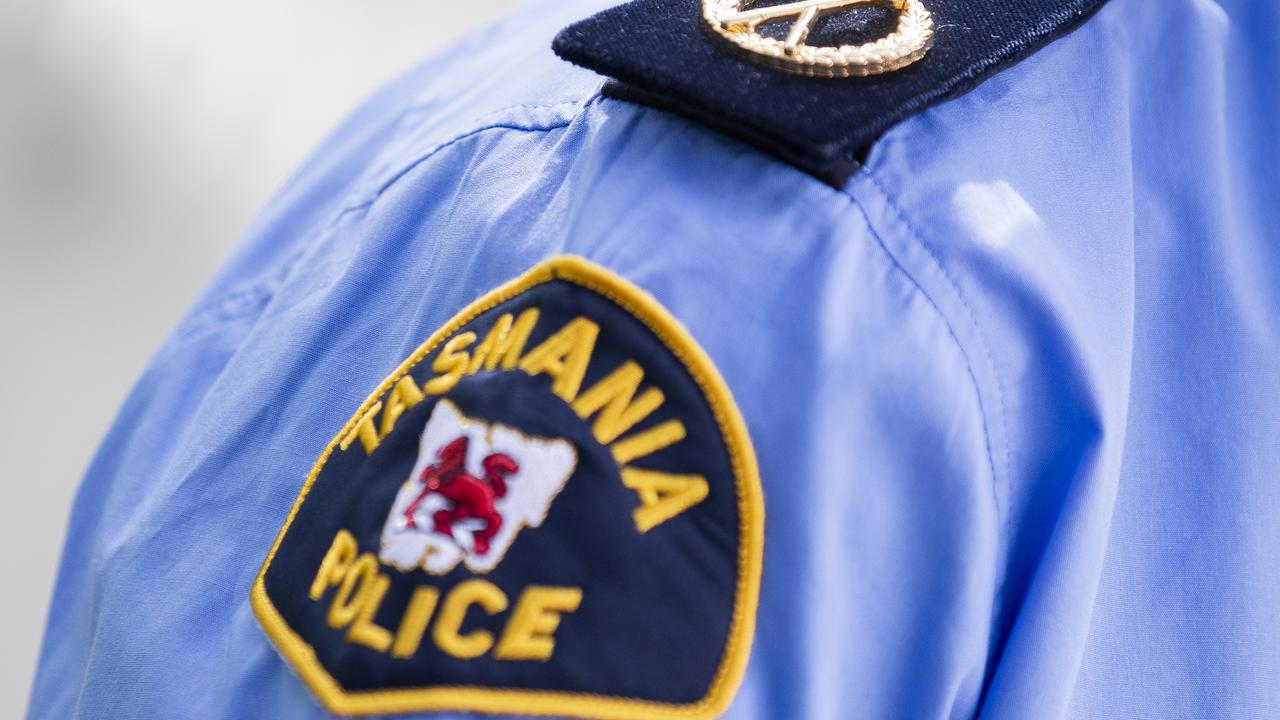Five-year-old Sharlette Bardsley first Tasmanian child to receive chemo for medulloblastoma brain tumour in Hobart
A bold partnership between three hospitals, a brilliant paediatrician and the bravery of a five-year-old girl is helping deliver hope to Tasmanian families of children with cancer.
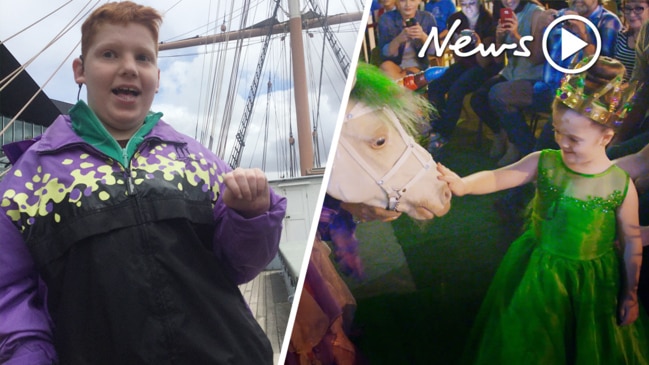
Tasmania
Don't miss out on the headlines from Tasmania. Followed categories will be added to My News.
- Hobart’s emotional guard of honour to Aurora Australis
- Researchers say facial tumour disease unlikely to wipe devils out
IT’S been a life of firsts for Sharlette Bardsley who was her mums first child, her grandmother’s first grandchild, and she recently became the first Tasmanian child to receive chemotherapy for a medulloblastoma in Hobart instead of Melbourne.
The five-year-old was diagnosed as having a 5cm tumour attached to the brain stem on May 2 this year.
Mum Cassie Bardsley said she first noticed something wasn’t quite right when Sharlette was 18 months old and was tired all the time and did not want to eat.
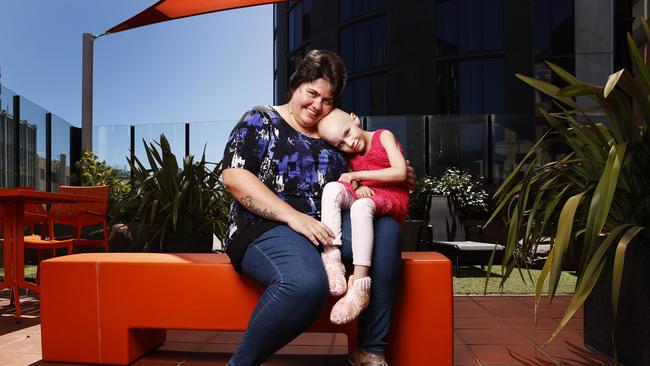
She said it progressed to include long bleeding noses up to 12 times a day, throwing up and hallucinations.
The St Helens family left their home — not knowing they would not return for 3 ½ months — at the start of May after Sharlette woke up with her left eye turning in.
“If it hadn’t been for that and being taken straight to the hospital, she would have been dead within three days because the fluid [to her brain] was already being stopped,” grandmother Michelle Allen said.
Less than a week after her diagnosis, Sharlette underwent two marathon surgeries in Hobart which removed 95 per cent of the tumour.
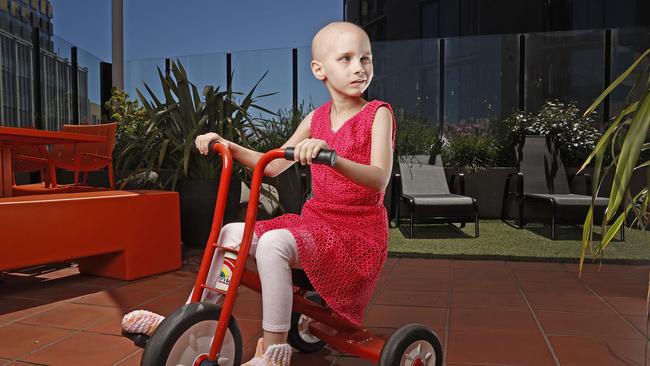
Ms Bardsley said the radiotherapy which followed in Melbourne during the pandemic was a really tough time with only one adult per child allowed in the hospital.
“At the hospital you’d put on a brave face for Sharlette — you don’t want her to see you upset because she can’t handle other people being upset,” she said.
“Then you go back to the accommodation and you’re there on your own, you can’t offload how you’re feeling to anyone.
“I said there was no way I could cope mentally doing that again with the chemo so I said can we get it done here and the doctors went away and had a discussion and sure enough within a week they rang with the good news.”
Professor John Heath, a paediatric and adolescent oncologist, set up the Children’s and Adolescent/Young Adult Cancer Clinical Trials Unit at the Royal Hobart Hospital about three years ago, largely through the support of the Kids Cancer Project.
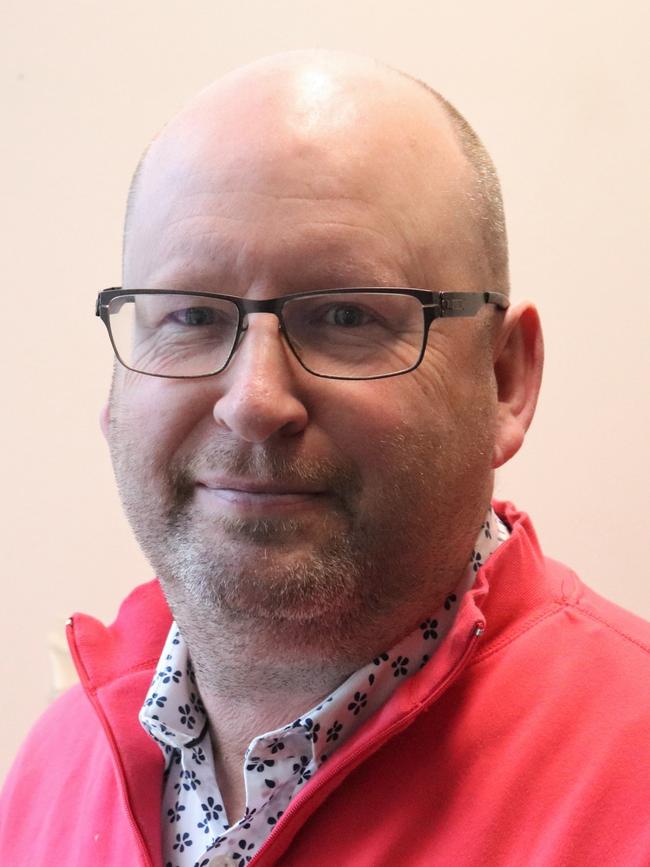
He said the St Judes Children’s Research Hospital in Memphis in the US and the RCH in Melbourne had collaborated on medulloblastoma for the past 25 years.
“Having demonstrated our ability to run clinical trials and do monitoring and recording, St Judes allowed us to treat Sharlette in Hobart whereas previously she would have to stay in Melbourne for probably another six or so months,” Prof Heath said.
“Sharlette was the guinea pig and things have gone well so that’s made them feel comfortable we could do it again and that we have the necessary infrastructure in place. Another child is now following in her footsteps and is in the early stages of treatment.”
Prof Heath said the opportunity may not have been possible without coronavirus.
“When it came up, that stimulated the Children’s Hospital and St Judes to think about broadening their horizons a bit,” he said.
“Once the coronavirus goes away, whether it will continue [in Hobart] is up for discussion, but I suspect they’ll see the advantages in allowing patients to remain at home.”
Sharlette and her family have been staying at Ronald McDonald House in Hobart since August and may be able to leave in a few weeks’ time, with her last round of chemotherapy scheduled for Tuesday.
They said they were incredibly grateful to all the staff who had helped Sharlette so far in her journey.
To donate to Ronald McDonald House, visit https://www.rmhc.org.au/donate



